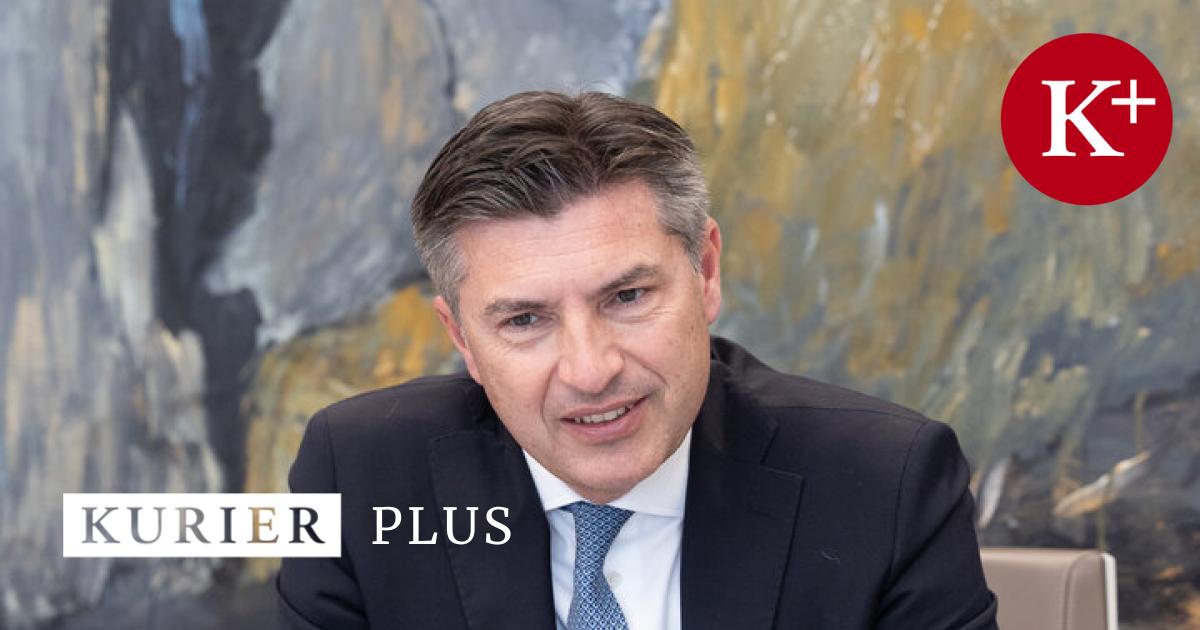When interest rates rise, you see it very quickly with loans, but only late with savings accounts. Conversely: When interest rates fall, you see it very quickly with savings accounts and very slowly with loans. What do you say to the criticism?
That she is wrong. Variable loans are usually tied to indicators such as the 3-month Euribor. The rates rise or fall, this is actually a clear automatic feature of the loan agreement. When it came to saving, Austria was one of the countries that passed on the increased deposit interest rates fastest, which is probably also due to competition. Unfortunately, in the discussion, many people confuse savings deposits with money due on demand or money in the salary account. Neither of these are forms of savings.
Do you think inflation has finally been defeated?
Inflation has fallen sharply because the effects of high energy prices have now receded. The word “defeated” is too martial for me, but I think we have inflation quite well under control. Now the focus of politics, as well as the central bank, must be on growth.
Austria is in recession for the second year this year. Elections were held on Sunday, but forming a government is likely to be difficult. How much do you have to worry about Austria’s location, prosperity and future?
We have to set the right course; it’s about stimulating growth. And we have to get rid of the enormous uncertainty among people and companies that is evident in the weak consumption and investment.
What would be your approach to moving Austria forward?
In addition to the concrete measures, such as increasing the investment bonus from ten to 15 percent, faster approval procedures, reducing bureaucracy and much more, it is also about mood, courage and confidence. For companies, for example, this means in concrete terms that they need planning security as to how the green transformation will continue. At the same time, I say this as an ardent European, we have to think bigger. So, expand the internal market, strengthen the Capital Markets Union and we need larger European companies to be competitive on the world stage.
You have been UniCredit’s Country Manager for Austria since the beginning of May. Mr. Ivan Vlaho became the new CEO of UniCredit Bank Austria. What was the background for this step and how does the dual leadership work? This is definitely a novelty for Austria…
From my point of view, it works very well because we are now an even stronger management team. In this way, we want to strengthen our position in the national and international markets. As Bank Austria, we have very strong local roots, but we also have the size and innovative strength of one of the largest European banks behind us. This is our strength and the new management team fits in with this. This is not unusual in the international banking market.
Parent company UniCredit is aiming to take over the German Commerzbank. Together they would be the second largest bank in Europe behind the British HSBC. Is growth in size the fantasy behind it?
Everything that can be said about it is currently very well covered in the media. Just one sentence: Europe needs strong banks.
Banks have built up a bad image, probably dating back to the financial crisis. If there is a good year like 2023, there will immediately be calls for an excess profits tax. What do you counter?
The image issue is definitely related to a lack of culture in the area of financial education. Strong banks are important for a functioning and flourishing economy. In Austria there are usually main banks that carry out millions of transactions and provide loans for people and companies every day. And no one can explain to me conclusively what an excess profit is anyway. Especially in the current very difficult economic phase, a weakening of the banks would be a serious disadvantage.


